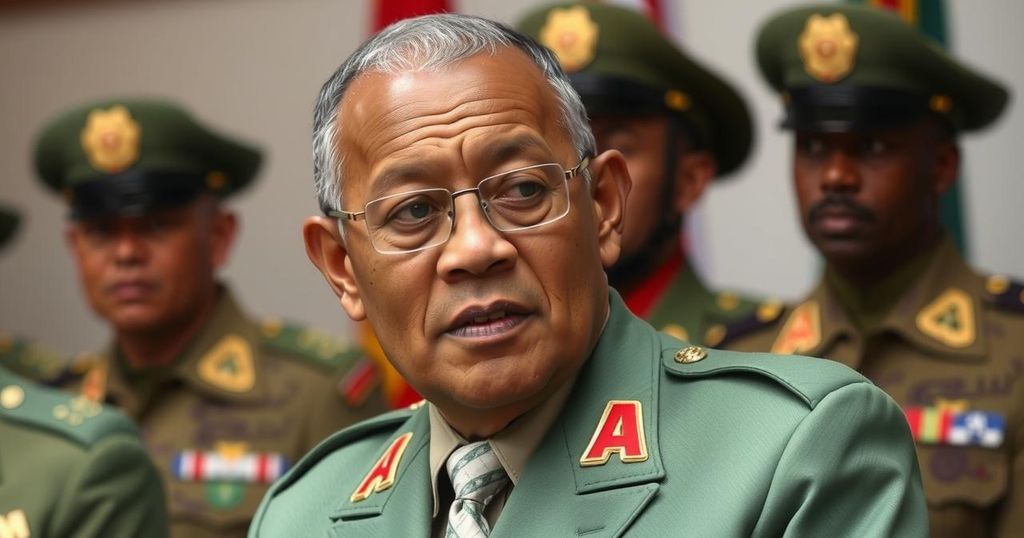Chad voted in a general election aimed at concluding military rule, but turnout was low at 38%, largely due to a boycott called by opposition parties alleging that results were pre-determined. President Deby encouraged participation, while opposition leaders expressed skepticism about the electoral process. Amid ongoing security issues and regional instability, the elections are viewed as a pivotal step toward democracy in Chad.
Chad held a general election on Sunday aimed at concluding three years of military governance. Estimated voter turnout was reported at 38 percent, reflecting widespread apathy prompted by a boycott called by opposition parties, who claim the election results were predetermined. Opposition leader Succes Masra asserted that the majority of Chadians opted to stay home in accordance with the boycott. This situation potentially favors candidates linked to President Mahamat Idriss Deby Itno, who assumed power following a military takeover in 2021 and faced allegations of electoral fraud in a subsequent presidential election in May.
Despite the boycott, President Deby urged registered voters to participate actively, asserting that the day represented a pivotal moment in the nation’s history. Observers reported high turnout figures among military personnel and nomadic populations due to logistical necessities, with the election painting a complex landscape amidst ongoing insecurity from groups like Boko Haram. Candidates are expected to address significant local issues, particularly the challenges faced by nomadic communities exacerbated by climate change.
In accordance with local custom, security forces voted a day earlier to facilitate order during the election. Discrepancies have arisen, with opposition factions claiming electoral malfeasance, including the disappearance of ballots in certain regions. This election is framed as an essential step towards democratic governance amid ongoing domestic and regional conflicts.
Polling is being observed by numerous international monitors as Chad navigates forward from its militarized past into a potentially more democratic future, following the lengthy rule of Idriss Deby, the late father of the current president.
Participants’ sentiments towards the election reflected a diversity of perspectives, with some expressing hope for change while others remained skeptical of the electoral process.
Chad’s recent general election is notable as it marks an important moment in a country that has experienced military rule for three years following a coup. The transitional government has positioned this election as a means to restore democratic governance after a prolonged period under military control, instigated by the death of long-term leader Idriss Deby. Opposition parties have raised issues of electoral integrity, asserting that systemic problems persist and that the election results are likely predetermined by the current regime, which creates a challenging atmosphere for legitimate democratic processes.
The general election in Chad serves as a critical juncture for the country as it attempts to transition from military rule to a democratic governance structure. However, widespread voter apathy and opposition boycotts pose significant challenges to the legitimacy of the electoral process. As the situation unfolds, it remains to be seen whether this election will indeed pave the way for meaningful political reform and satisfy the calls for change from the populace.
Original Source: www.khq.com






